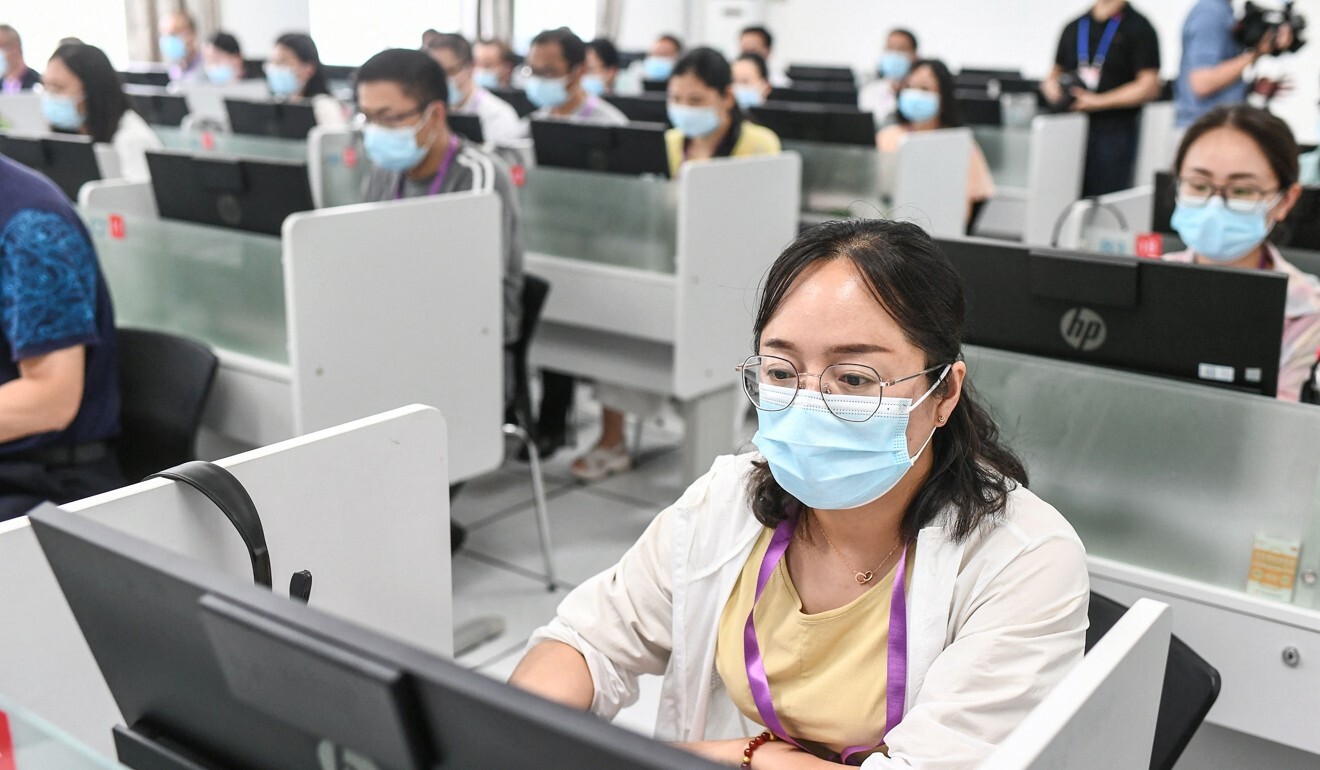
The Chinese student protests putting ‘independent’ college merger plans on hold
- Violence erupted at several campuses in eastern China in opposition to an overhaul of the for-profit tertiary education system
- Critics say the ‘independent’ universities are badly managed but students fear their degrees will be downgraded
At first the students petitioned local governments for information about the future of the colleges they attended.
With no clarification from the authorities, thousands of the students mounted protests on campus earlier this month, clashing with police and security guards, according to footage and accounts posted online.
The protests started at Zhejiang University of Technology’s Zhijiang College on June 4, before spilling over the next day to three other independent colleges in the province.

In Jiangsu, protesters at Zhongbei College affiliated with Nanjing Normal University detained their college head for more than 30 hours, according to Nanjing police. Protests broke out on five campuses in neighbouring Jiangsu provinces in the next few days.
To pacify the students, education departments in Jiangsu and Zhejiang announced suspension of the reform plan.
The demonstrations have put on hold – but not shelved – national plans to rein in a for-profit sector that critics say is poorly managed and badly in need of tighter regulation.
Education in China: high costs, intense competition for schools, excessive tutoring, and fewer children
Independent colleges are essentially the private arms of publicly funded universities. They offer an undergraduate education to students who do not have the scores to qualify for public university places but are willing to pay a fee for a degree.
Although identified as separate colleges, the institutions often have the name of their affiliated universities in their official titles. They only offer undergraduate courses and are run for profit.
Universities in the eastern province of Zhejiang began offering the courses in the late 1990s and the commercial model was soon taken up elsewhere.
By 2019, there were 257 of the independent colleges throughout the country, which together had about 160,000 staff and more than 2.55 million students. That compared with 1,008 publicly funded universities, employing 1.7 million staff and educating 16.6 million students.
Yang Rui, associate dean of University of Hong Kong’s faculty of education, said the model spread to meet the insatiable demands of higher education as the economy picked up steam and household income grew.
But from the start the colleges had a host of problems.
“A lot of these independent institutions are poorly managed in terms of teaching quality, student recruitment, curriculum and infrastructure when compared to regular universities. To put it bluntly, it’s a corrupt way for publicly funded universities to sell their brand names to parents who can pay,” he said. “It’s a classic example of the lax regulation in China’s higher education sector.”
In 2019, the State Council, the country’s cabinet, approved plans to overhaul the system and ordered the institutions to implement them. In May, the Ministry of Education told the independent institutions that they could close, become a private university without the affiliated title, or merge with another institution such as a vocational college to become a vocational university.
Vocational training is generally considered less prestigious than university education, despite the strong demand for skilled workers.

01:27
Son hugs father after getting high score in China’s university entrance exam
Yang said elitism was deeply ingrained in Chinese education.
“Traditionally, [university-educated people] enjoy a higher social status than technical craftsmen,” he said.
“Parents care more about their children having a better social status and income rather than the nature of education and what it does to the full development of their children.”
In early June, the ministry approved proposals to restructure 13 independent institutions in Beijing, Hunan, Anhui, Jiangsu, Yunnan, Shandong and Sichuan provinces.
Under the proposals, students already in the system could receive the same qualification as previous graduates but new recruits would graduate under the institution’s new banner.
But that did not ease student fears. In Jiangsu province, an organiser of a protest at the Nanjing University of Chinese Medicine’s Hanlin College said the students were concerned that their qualifications would be downgraded to certificates from vocational colleges.
The organiser, who would only identify himself as Tong, said he graduated from the college two years ago but he felt he had to speak up for alumni and students who would be affected by the changes.
Tong said students and parents had petitioned the Jiangsu provincial government against plans to merge the college with a vocational institute but to no avail.
Chinese private education operators push ahead with IPOs as tighter rules loom
“The admission qualification of our school, especially for disciplines such as medicine, is almost as high as that of a regular university,” Tong said.
“Students fear that their degrees would be downgraded to that of a vocational degree, putting them at a disadvantage in the job market or if they want to pursue further study or sit a civil servant examination.”
Tong said that even though the plan was on hold, the fears had not disappeared.
“I don’t think the row is over now as many students are worried that the suspension is just temporary and that those who took part in the protests will be punished,” he said.
Ning, a 20-year-old second-year student at Nanjing Normal University’s Taizhou College, said the students were angry that school administrators had ignored them.
“We were angry and speechless. The merger came out of nowhere as none of us had been properly informed as the policy was announced suddenly,” Ning said.
In mid-June, immediately after the protests, the ministry clarified that the merged vocational universities would still offer bachelor’s degrees after the transition.
Nevertheless, the provincial governments of Zhejiang, Jiangsu and Jiangxi called off all plans to merge independent institutions with vocational colleges. In Shandong province, plans to merge individual independent institutions with vocational colleges were also suspended.
Non-profit that empowers rural Chinese women through education celebrated in portraits of some of those it has helped
Xiong Bingqi, a Beijing-based education policy commentator and director of the 21st Century Education Research Institute, said part of the problem was the general misconception that vocational qualifications were inferior.
“There is great demand in China for people with vocational and technical training ... but most universities are unwilling to embrace vocational and professional education because of the inferiority stigma,” Xiong said.
He said the suspension was the authorities’ way of addressing the students’ concerns.
“The ministry and the colleges have already stated that any reform will proceed after extensive consultation with students and faculties,” Xiong said.


